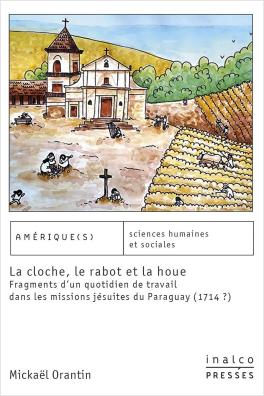
The Bell, the Plane and the Hoe
Everyday Work in Jesuit Missions in Paraguay (1714?)
Series : Amérique(s)
Subject : Humanities and social sciences
25 €
Presentation
Okoga apovo ava reko ramõguarãma. Written 300 years ago, hundreds of kilometres north of Buenos Aires, these Guarani words instruct the reader on “the behaviour that men must adopt when working in the fields.” Opening one of the 88 chapters of a catechism of work, produced in Jesuit missions in Paraguay in the early 18th century and discovered only recently, they show the problems that arose when the Guarani encountered the missionaries seeking to evangelize them.
Missions were often described by their contemporaries – from the missionaries themselves to Enlightenment philosophers – as real-life utopias, where work was as well organized as religion. They were hubs for intense agricultural and artisanal production. In these areas, more than 100,000 indigenous people grew wheat or cotton, raised livestock, built large churches and made tools, statues, musical instruments and even astronomical glasses. However, radically different indigenous and European practices and representations of work led to many conflicts, illustrated in missionary chronicles portraying the Guarani as lazy and lacking in intelligence.
The Bell, the Plane and the Hoe, which features previously unpublished translations of several chapters of the Luján Manuscript, combines fictitious historical reconstructions with an analysis of work practices and social relations. In doing so, it seeks to deconstruct prejudices and show how collaboration – but also opposition – between Guarani and Jesuits – resulted in the co-construction of a unique space, which still fires the imagination today, in America and Europe.
Author
Mickaël Orantin, a doctoral student in anthropology at IHEAL-CREDA under the supervision of Capucine Boidin and Denis Merklen, specializes in Jesuit missions in Paraguay (17th-18th centuries).
238 pages
16 x 24 cm
Publication: 17/09/2020
ISBN: 9782858313525